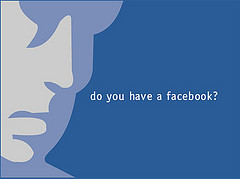Do you have a digital estate?

If you were involved in a traffic accident or became ill and died, what happens to your stuff? If you are under 18, you don’t have a will and have probably never thought about this. Your parents, brothers and sisters would take care of your belongings.
But what about your comments and photos on Facebook and MySpace? Who owns your You Tube videos? Is it your property or does it belong to Facebook? These are issues being considered by social networking sites as well as state legislatures and parents.
In one case in Oregon, 22 year-old Loren Williams died in a motorcycle crash. His mother, Karen Williams, wanted to know everything she could about her son including comments on Facebook by his friends. Facebook changed his password, thereby blocking access to his posts.
Mrs. Williams had no choice but to sue Facebook. After a two-year battle, a settlement was reached. Facebook granted her ten months of access before removing Loren’s page.
This is a new area of the law that few states have addressed. Oklahoma passed a bill in 2010 and became the first state to take action on a broad basis. Nebraska is currently considering similar legislation. Rhode Island, Connecticut, Idaho and Indiana have laws limited to email accounts or electronically stored documents of the deceased.
As an example, Oklahoma’s law reads as follows: 58 § 269. Executor or administrator–Powers The executor or administrator of an estate shall have the power, where otherwise authorized, to take control of, conduct, continue, or terminate any accounts of a deceased person on any social networking website, any microblogging or short message service website or any e-mail service websites.
A website’s content in this regard is referred to as part of a person’s digital estate. The goal of legislation is to grant access to personal content to loved ones when a family member dies. Just like the things in your bedroom, your online life is an extension of yourself. It may be a good idea to tell your parents that if something happens to you, they can have access to your digital accounts and content. A simple written statement giving them permission to read and make copies of your Facebook posts, for example, will spare them the experience Mrs. Williams endured. It may be years before the whole country is on board with similar legislation.



